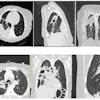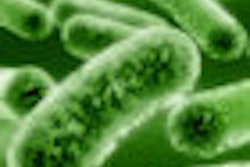Location-specific dental erosion is not associated with gastroesophageal reflux (GER), salivary flow, or bacterial load, according to a new study in Gastroenterology (August 5, 2011).
Dental erosion has been shown to be a complication of GER in adults, but in children it is unclear if GER has a role in dental pathologic conditions, noted researchers from the department of pediatrics at the University of California, San Francisco.
They investigated the prevalence of dental erosion among children with and without GER symptoms, and whether salivary flow rate or bacterial load contributes to location-specific dental erosion. They performed a cross-sectional study of 59 children (ages 9-17 years) with symptoms of GER and 20 asymptomatic children. All study participants completed a questionnaire on dietary exposure, and their permanent teeth were examined for erosion into dentin, erosion locations, and affected surfaces.
Controlling for age, dietary intake, and oral hygiene, the researchers found no association between GER symptoms and dental erosion, by tooth location or affected surface. In addition, salivary flow did not correlate with GER symptoms or erosion, and erosion location and surface were independent of total bacteria and levels of Streptococcus mutans and Lactobacillus.



















